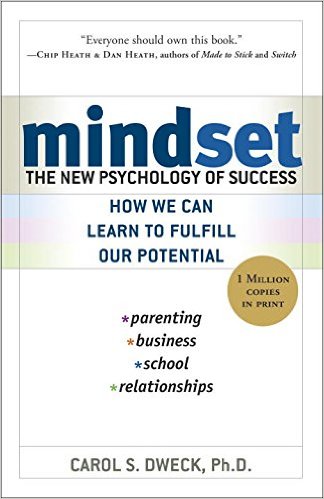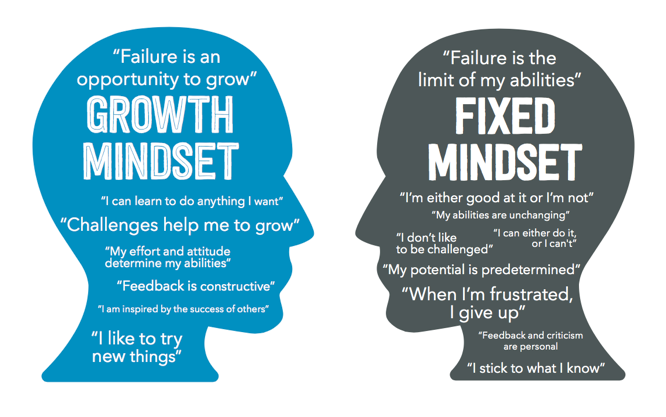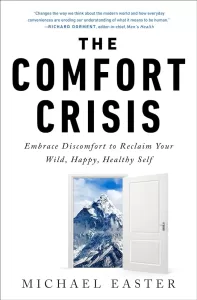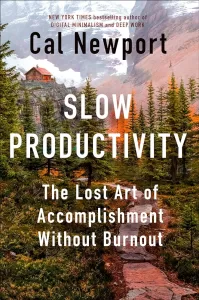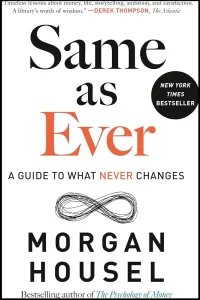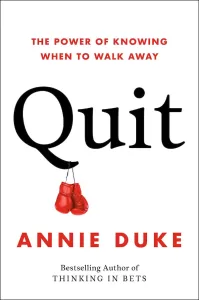Book Review: “Mindset”
Book: Mindset by Carol Dweck
Reviewer: Bobby Powers
My Thoughts: 9 of 10
Over the past several months, I've read numerous books that referenced Carol Dweck's research on the "fixed mindset" and the "growth mindset." By the fourth or fifth reference, I asked myself why I was bothering to read what amounted to secondary research: authors quoting Dweck. I finally went straight to the source and picked up a copy of Dweck's book Mindset. In the book, Dweck blows the doors off IQ bias and explains why hard work and continuous improvement are more important than innate traits like static intelligence. Powerful book. Powerful research. I definitely recommend checking out Mindset. It will cause you to question many assumptions you've likely held about intelligence.
Takeaways from the Book
Qualities of the Fixed Mindset
- Based on the belief that your qualities are carved in stone
- Creates an urgency to prove yourself over and over, as everything comes back to a question of whether you’re good enough
- To those with a fixed mindset, “failure” on a task leads the person to question their identity, intelligence, etc. and apply labels like “I’m a total failure,” “I’m an idiot,” etc.
- “Leads to a desire to look smart and therefore a tendency to (1) avoid challenges (2) get defensive or give up easily (3) see effort as fruitless or worse (4) ignore useful negative feedback and (5) feel threatened by the success of others. As a result, [fixed mindset individuals] may plateau early and achieve less than their full potential.”
Qualities of the Growth Mindset
- Based on the belief that your basic qualities are things you can cultivate and grow through your efforts
- In this mindset, the hand you’re dealt is just the starting point for development.
- To those with a growth mindset, “failure” exposes areas for personal growth, as they now know what they need to improve.
- Although people may differ in every which way—in their initial talents and aptitudes, interests, or temperaments—everyone can change and grow through application and experience.
- “Leads to a desire to learn and therefore a tendency to (1) embrace challenges (2) persist in the face of setbacks (3) see effort as the path to mastery (4) learn from criticism and (5) find lessons and inspiration in the success of others. As a result, [growth mindset individuals] reach ever-higher levels of achievement.”
Comparing the Two Mindsets
- “In one world—the world of fixed traits—success is about proving you’re smart or talented. Validating yourself. In the other—the world of changing qualities—it’s about stretching yourself to learn something new. Developing yourself.”
- “From the point of view of the fixed mindset, effort is only for people with deficiencies...Why is effort so terrifying? There are two reasons. One is that in the fixed mindset, great geniuses are not supposed to need it. So just needing it casts a shadow on your ability. The second is that it robs you of all your excuses. Without effort, you can always say, ‘I could have been [fill in the blank].’ But once you try, you can’t say that anymore. Someone once said to me, ‘I could have been Yo-Yo Ma.’ If she had really tried for it, she wouldn’t have been able to say that.”
- “In the growth mindset, it’s almost inconceivable to want something badly, to think you have a chance to achieve it, and then do nothing about it.”
- “Mindsets frame the running account that’s taking place in people’s heads. They guide the whole interpretation process. The fixed mindset creates an internal monologue that is focused on judging: 'This means I’m a loser.' 'This means I’m a better person than they are.' 'This means I’m a bad husband.' 'This means my partner is selfish.' In several studies, we probed the way people with a fixed mindset dealt with information they were receiving. We found that they put a very strong evaluation on each and every piece of information. Something good led to a very strong positive label and something bad led to a very strong negative label.”
Implications for Teaching and Training
- “I think it’s too easy for a teacher to say, ‘Oh, this child wasn’t born with it, so I won’t waste my time.’ Too many teachers hide their own lack of ability behind that statement.” -Dorothy DeLay
- “Great teachers set high standards for all their students, not just the ones who are already achieving.”
- “Just because some people can do something with little or no training, it doesn’t mean that others can’t do it (and sometimes do it even better) with training.”
- “Great teachers believe in the growth of the intellect and talent, and they are fascinated with the process of learning.”
Applications for Parents
- “Parents think they can hand children permanent confidence—like a gift—by praising their brains and talent. It doesn’t work, and in fact has the opposite effect. It makes children doubt themselves as soon as anything is hard or anything goes wrong. If parents want to give their children a gift, the best thing they can do is to teach their children to love challenges, be intrigued by mistakes, enjoy effort, and keep on learning.”
- “Does this mean we can’t praise our children enthusiastically when they do something great? Should we try to restrain our admiration for their successes? Not at all. It just means that we should keep away from a certain kind of praise—praise that judges their intelligence or talent. Or praise that implies that we’re proud of them for their intelligence or talent rather than for the work they put in.”
- "After seven experiments with hundreds of children, we had some of the clearest finding I’ve ever seen: Praising children’s intelligence harms their motivation and it harms their performance.”
- “One more thing about praise. When we say to children, ‘Wow, you did that so quickly!’ or ‘Look, you didn’t make any mistakes!’ what message are we sending? We are telling them that what we prize are speed and perfection. Speed and perfection are the enemy of difficult learning.”
Other Insights
- Even the IQ test was not designed to test static intelligence. Alfred Binet, its creator, designed the test “to identify children who were not profiting from the Paris public schools, so that new educational programs could be designed to get them back on track. Without denying individual differences in children’s intellects, he believed that education and practice could bring about fundamental changes in intelligence.”
- “It’s not always the people who start out the smartest who end up the smartest.”
- “If you only go through life doing stuff that’s easy, shame on you.”
- “We endow our heroes with superhuman abilities that led them inevitably toward their greatness...People with the growth mindset, however, believe something very different. For them, even geniuses have to work hard for their achievements. And what’s so heroic, they would say, about having a gift?”"
Think you’d like this book?
Other books you may enjoy:
- Grit by Angela Duckworth
- Outliers by Malcolm Gladwell
Other notable books by the author:
- Mathematical Mindsets by Jo Boaler and Carol Dweck
- Succeed: How We Can Reach Our Goals by Heidi Grant Halvorson and Carol Dweck
- Self-Theories: Their Role in Motivation, Personality, and Development by Carol Dweck
Want to become a stronger leader?
Sign up to get my exclusive
10-page guide for leaders and learners.
